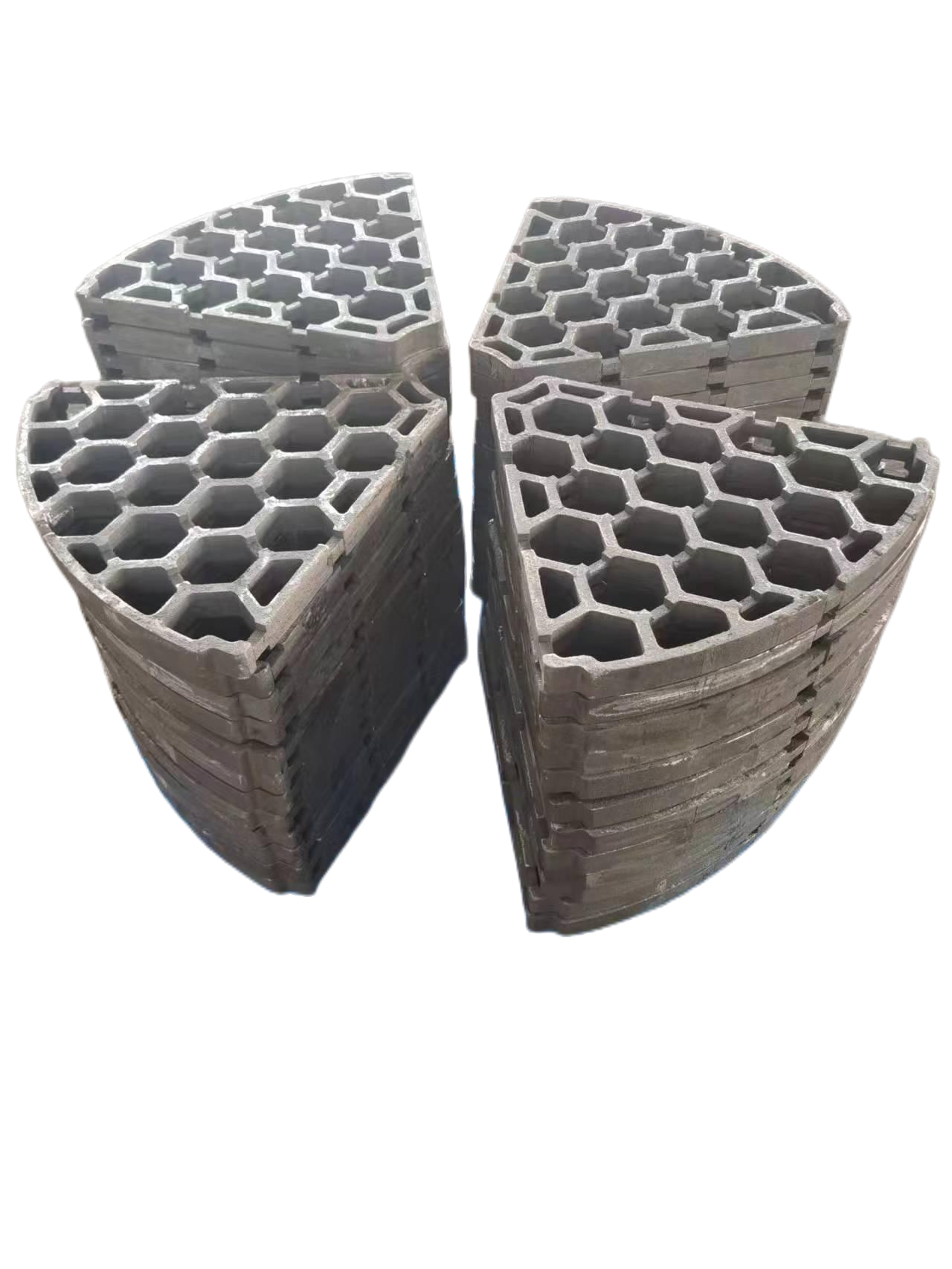Introduction: Beyond Basic Procurement - A Strategic Approach to Casting
Many businesses approach casting services as a simple procurement task: send a drawing, get a quote, and place an order. However, this transactional mindset leaves significant value untapped. In today's competitive manufacturing landscape, casting should be viewed not as a commodity service, but as a strategic partnership that can drive innovation, reduce costs, and enhance product performance.
The difference between simply purchasing castings and truly maximizing their benefits can determine your product's market success, profitability, and longevity. This comprehensive guide will reveal how forward-thinking manufacturers are transforming their approach to casting services to gain a decisive competitive edge.
1. The Foundation: Strategic Design for Manufacturability (DFM)
The greatest opportunity to maximize value occurs before the first mold is ever created. Proactive Design for Manufacturability (DFM) collaboration with your casting partner can yield dramatic improvements in quality, cost, and performance.
1.1. Early Engagement with Your Casting Partner
Involving your casting supplier during the design phase, rather than after finalizing drawings, provides access to invaluable expertise. Experienced foundry engineers can identify potential manufacturing challenges and recommend modifications that maintain design intent while improving castability.
Actionable Strategies:
Schedule DFM meetings during conceptual design phases
Provide 3D models early for manufacturability analysis
Establish open communication channels between your design team and foundry engineers
1.2. Optimizing Geometry for Casting Success
Simple design adjustments can significantly impact casting quality and cost:
Wall Thickness Considerations:
Maintain uniform wall thickness wherever possible to prevent shrinkage defects
Implement gradual transitions between thick and thin sections
-
Design recommended thickness based on material and casting process:
Aluminum sand casting: 4-25 mm
Steel investment casting: 2-50 mm
Iron sand casting: 5-40 mm
Draft Angle Optimization:
Include appropriate draft angles (typically 1-3°) for pattern removal
Negotiate minimum draft requirements with your casting partner
Consider increased draft for deeper sections and manual molding processes
Feature Design Enhancements:
Use generous radii and fillets (minimum 25-30% of adjacent wall thickness)
Avoid sharp corners that create stress concentration points
Design ribs with thickness 60-80% of adjacent walls
2. Material Selection: Balancing Performance and Economics
Choosing the right material involves more than meeting mechanical specifications—it requires considering the total cost of ownership and manufacturing feasibility.
2.1. The Performance-Cost Intersection
Different materials offer varying benefits and challenges in casting:
Aluminum Alloys:
Excellent strength-to-weight ratio
Good corrosion resistance
Lower melting points reduce energy costs
Higher shrinkage rates require careful gating design
Cast Iron:
Superior vibration damping
Excellent compressive strength
Lower material costs
Limited impact toughness compared to steel
Alloy Steels:
High strength and toughness
Good wear resistance
Respond well to heat treatment
Higher melting points increase production costs
2.2. The Heat Treatment Advantage
As emphasized in our previous discussions about enhancing metal properties, proper heat treatment transforms as-cast material into high-performance components. Work with partners who understand:
Solution annealing for corrosion-resistant alloys
Quenching and tempering for high-strength applications
Stress relieving for dimensional stability
Austempering for enhanced ductility and toughness
3. Process Selection: Matching Technology to Requirements
Choosing the right casting process significantly impacts quality, cost, and capability.
3.1. Comprehensive Process Evaluation
Sand Casting:
Best for: Large parts, low to medium volumes, complex geometries
Economic advantage: Lower tooling costs, material flexibility
Considerations: Rougher surface finish, wider tolerances
Investment Casting:
Best for: Complex geometries, excellent surface finish, tight tolerances
Economic advantage: Reduced machining costs, thin walls possible
Considerations: Higher tooling costs, size limitations
Die Casting:
Best for: High volumes, excellent dimensional consistency
Economic advantage: Fast cycle times, low labor content
Considerations: High tooling investment, limited to non-ferrous metals
3.2. The Prototype to Production Bridge
Implement a structured approach to process selection:
Prototype phase: Consider 3D-printed sand molds or rapid investment casting patterns
Pre-production: Use low-volume tooling for market testing
Full production: Commit to production-optimized tooling based on validated demand
4. Cost Optimization Beyond Unit Price
Sophisticated buyers look beyond the price per piece to total cost of ownership.
4.1. The True Cost Calculation
Traditional View:
Piece price
Tooling cost
Shipping cost
Strategic Total Cost Analysis:
Quality costs: Inspection, rework, scrap
Inventory costs: Safety stock, warehousing
Processing costs: Machining, finishing, assembly
Risk costs: Line downtime, warranty claims
4.2. Value Engineering Opportunities
Consolidate assemblies into single castings to reduce part count and assembly labor
Implement functional integration by casting in features that would otherwise be machined or assembled
Optimize weight without compromising function to reduce material cost
Standardize features across multiple parts to simplify tooling and reduce variability
5. Quality Assurance: Prevention Over Detection
A proactive quality strategy reduces costs and improves reliability throughout the product lifecycle.
5.1. Implementing Robust Quality Systems
Supplier Qualification:
Require relevant certifications (ISO 9001, IATF 16949, AS9100)
Conduct on-site audits of capability and processes
Review statistical process control data and capability studies
Process Control:
Establish clear quality requirements upfront
Implement First Article Inspection (FAI) protocols
Require material certification with each shipment
Conduct regular process audits and capability reviews
5.2. Advanced NDT Implementation
Work with partners who offer appropriate non-destructive testing:
Radiographic testing for internal defects
Dye penetrant inspection for surface cracks
Ultrasonic testing for internal quality and thickness verification
Dimensional validation with CMM and optical scanning
6. Building Strategic Partnerships
The most significant benefits come from long-term, collaborative relationships with casting suppliers.
6.1. Characteristics of Strategic Partnerships
Transparent communication about challenges and opportunities
Joint improvement initiatives and regular business reviews
Technology sharing and early involvement in new projects
Risk and reward sharing models for major initiatives
6.2. Measuring Partnership Value
Track metrics beyond price per piece:
On-time delivery performance
Quality performance (PPM, first-pass yield)
Total cost reduction initiatives achieved
Innovation contributions to your products
Responsiveness to engineering changes and issues
7. Continuous Improvement and Innovation
The casting industry continues to evolve, offering new opportunities for those willing to explore emerging technologies and methodologies.
7.1. Leveraging Digital Manufacturing
Simulation-driven design using casting simulation software to optimize gating and risering
Additive manufacturing for complex cores and molds impossible with conventional methods
Digital twin technology to predict performance and optimize designs
Automated quality systems with real-time process monitoring
7.2. Implementing Lean Foundry Principles
Partner with suppliers who embrace lean manufacturing:
Visual management systems for clear communication
Standardized work for consistent quality
Continuous flow to reduce lead times
Root cause analysis for problem solving
Conclusion: Transforming Casting from Cost Center to Competitive Advantage
Maximizing the benefits of casting services requires a fundamental shift in perspective—from viewing casting as a necessary manufacturing step to recognizing it as a strategic capability that can differentiate your products in the marketplace.
The companies that excel in leveraging casting services don't just buy components; they cultivate expertise, build strategic partnerships, and integrate casting knowledge deeply into their product development processes. They understand that the greatest value often comes from the invisible advantages: the weight reduction that improves efficiency, the reliability that builds brand reputation, and the design freedom that enables innovation.
By implementing the strategies outlined in this guide—proactive DFM, intelligent process selection, total cost optimization, and strategic partnership building—you can transform your casting procurement from a routine purchasing activity into a powerful competitive weapon.
The path to maximizing value begins with recognizing that the cheapest casting is rarely the most economical, and the true cost of poor quality always exceeds the price of getting it right the first time.
Table of Contents
- Introduction: Beyond Basic Procurement - A Strategic Approach to Casting
- 1. The Foundation: Strategic Design for Manufacturability (DFM)
- 2. Material Selection: Balancing Performance and Economics
- 3. Process Selection: Matching Technology to Requirements
- 4. Cost Optimization Beyond Unit Price
- 5. Quality Assurance: Prevention Over Detection
- 6. Building Strategic Partnerships
- 7. Continuous Improvement and Innovation
- Conclusion: Transforming Casting from Cost Center to Competitive Advantage


